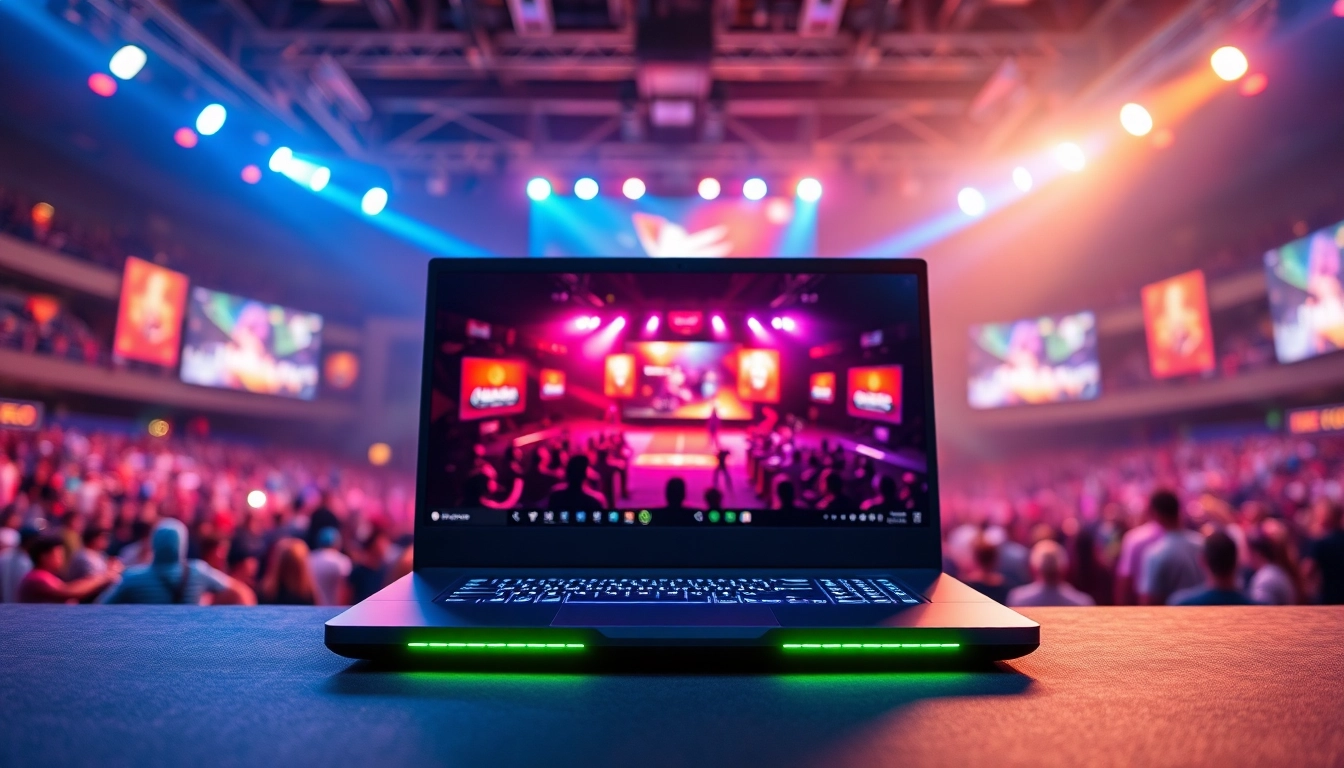
Top Features to Consider When Choosing Your Gaming Laptop
Understanding Gaming Laptop Specifications
Choosing the right Gaming Laptop can be an overwhelming task, especially with the diverse options and specifications available in the market today. Key considerations include performance, build quality, and suitability for your gaming needs. Let’s break down the vital specifications that influence the performance of a gaming laptop.
Key Components That Define Performance
Gaming laptops are built with high-performance components that ensure smooth gameplay. The primary specifications that matter include:
- Graphics Card (GPU): This is arguably the most critical component for gaming laptops. A strong GPU renders game graphics seamlessly and supports high frame rates.
- Processor (CPU): The CPU is the brain of your laptop, affecting game performance and multitasking capabilities. More powerful processors can handle complex calculations and improve responsiveness during gameplay.
- RAM: More RAM allows for smoother performance in gaming and multitasking. Most gaming laptops come with at least 8GB, but higher-end models may offer 16GB or more for maximum efficiency.
- Storage: The type and size of storage can greatly impact load times. Solid State Drives (SSDs) are preferred over Hard Disk Drives (HDDs) due to their faster data access speeds, which contribute to quicker boot and load times for games.
Importance of Graphics Card in Gaming Laptop
The graphics card dictates how well a gaming laptop can handle contemporary titles. Modern gaming demands high-quality graphics, and without a robust GPU, you may face frame rate drops and graphical glitches. It’s essential to invest in a laptop with a dedicated graphics card tailored for gaming. Top-tier GPUs, such as NVIDIA GeForce or AMD Radeon, can drastically enhance your gaming experience, allowing for higher resolutions and more detailed textures.
Processor Selection for Optimal Gameplay
The Central Processing Unit plays a pivotal role in determining how well games perform on your gaming laptop. A faster processor can significantly reduce lag during gameplay, especially in resource-heavy titles. Look for gaming laptops equipped with modern multi-core processors, as they not only enhance gaming performance but also facilitate better multitasking, running background applications while playing demanding games.
Types of Gaming Laptops Available
Understanding the types of gaming laptops available can help you align your purchase with your specific gaming needs and budget.
Budget-Friendly Gaming Laptop Options
For gamers on a budget, numerous options offer reasonable performance without breaking the bank. Though these laptops may not feature the latest graphics or processing power, they are equipped to handle popular titles at lower settings. Key specifications to look for include:
- Entry-level GPUs such as the GTX 1650 or Radeon RX 560.
- Intel Core i5 or equivalent AMD Ryzen processors.
- At least 8GB of RAM and a possible upgrade option.
- Storage solutions that combine SSDs and HDDs for speed and capacity.
Investing in a budget-friendly option can allow you to enjoy gaming while saving funds for future upgrades.
High-End Gaming Laptop Features
Premium gaming laptops are equipped with the latest specifications designed to handle even the most demanding games. These systems often include:
- Top-of-the-line GPUs, such as the NVIDIA RTX series for real-time ray tracing capabilities.
- High-performance CPUs like Intel Core i7/i9 or AMD Ryzen 7/9 for unparalleled speeds.
- Increased RAM options, typically starting at 16GB and extendable to 32GB.
- High-quality display resolutions, often reaching 4K with high refresh rates for fluid motion.
Choosing a high-end gaming laptop ensures that you can play the latest games with maximum settings and visual fidelity.
Compact vs. Full-Sized Gaming Laptop Designs
Gaming laptops come in various form factors, mainly categorized as compact or full-sized. Each has its advantages:
- Compact Gaming Laptops: Highly portable, these laptops generally feature smaller screens (13-15 inches) and lighter designs. They are ideal for gamers who travel frequently or have limited desk space but may sacrifice some performance due to thermal constraints.
- Full-Sized Gaming Laptops: Usually larger (15-17 inches) with full-sized keyboards and more room for ventilation, these models offer superior performance but can be cumbersome to transport. They’re better suited for those who prioritize performance over portability.
Assessing Your Gaming Needs
Before making a purchase, it’s crucial to evaluate your specific gaming needs. This analysis will help you select the right specifications balance according to how you intend to use your gaming laptop.
Determining Usage Scenarios for Gaming Laptop
Consider how you plan to use your laptop. If you’re primarily playing graphics-intensive games, a higher-spec model is necessary. However, if casual gaming is your focus, a mid-range option may suffice. Understand your gaming habits and the types of games you prefer to streamline your decision-making process.
Future-Proofing Your Gaming Laptop Choice
Investing in a gaming laptop that can adapt to future gaming demands is essential. Look for upgradable components, such as RAM and storage, to keep your device relevant. Emphasizing future-proof technology will prolong the laptop’s usability, making it a sound financial decision.
Evaluating Portability Requirements
The size and weight of a gaming laptop can significantly affect its portability. If you need to transport your laptop frequently, opt for a lighter, more compact model. Conversely, if you primarily game at home or in dedicated spaces, a heavier, full-sized model with superior performance may be the better choice.
Best Practices for Buying a Gaming Laptop
Finding the right gaming laptop involves thorough research and strategic planning. Here are best practices to guide your purchasing decision.
Where to Find Reliable Reviews and Comparisons
While several websites provide reviews, seek out reputable tech sources that conduct in-depth analyses and comparisons. Look for expert opinions on performance metrics, user reviews for larger brands, and benchmark tests to get an authentic feel of the device’s capabilities.
Timing Your Purchase for the Best Deals
Being strategic about your purchase timing can lead to significant savings. Consider waiting for sales events like Black Friday, back-to-school promotions, or holiday sales. Research seasonal discounts and track price changes across platforms to secure the best deal.
Warranty and Support Considerations
Warranties and customer support are essential factors when purchasing a gaming laptop. Always review the warranty terms: look for options that cover hardware malfunctions and offer reliable customer support. Good customer service can be invaluable in case of repairs or replacements.
Maintaining Your Gaming Laptop Performance
Once you’ve invested in a gaming laptop, maintaining its performance is crucial for longevity and sustained gameplay quality. Here are essential maintenance tips:
Routine Maintenance Tips
Regular maintenance can extend the life of your gaming laptop. This includes cleaning the vents to prevent overheating, ensuring that your battery is properly cared for, and executing system cleanups to remove unnecessary files. Keeping your hardware and software updated will help enhance overall performance.
Keeping Software Updated for Performance
Keeping your operating system and all gaming-related software updated ensures you have the latest features and security patches. Additionally, game developers frequently release updates that enhance performance and optimize graphics, so regularly check for updates to ensure a seamless gaming experience.
Cooling Solutions for Extended Gaming Sessions
Gaming laptops generate a significant amount of heat during long gaming sessions. Consider investing in a cooling pad, which can help dissipate heat and maintain optimal temperatures. Proper ventilation is critical to prevent hardware damage, so ensure your laptop remains in a well-ventilated area during use.



